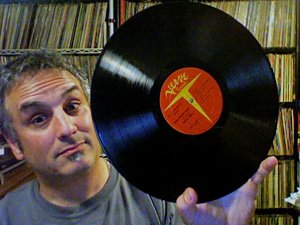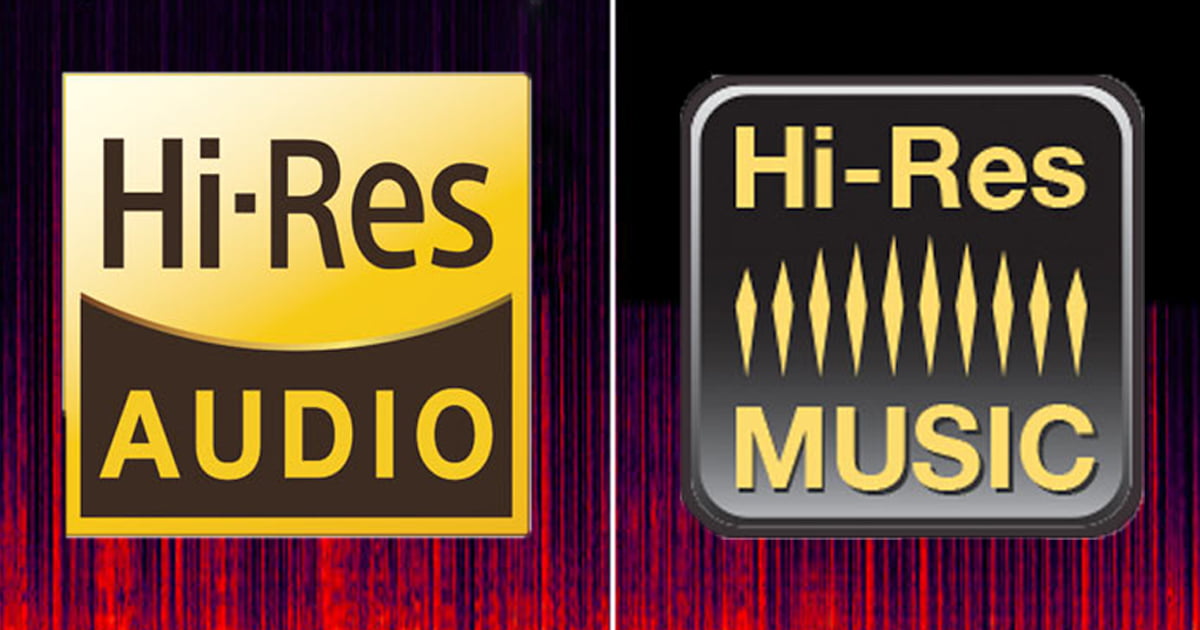It’s the time of year for saving money!
I had to look up the term “swan song” in preparation for this review of David Bowie’s latest and last album, Blackstar According to the Merriam-Webster Dictionary, a swan song is:
- 1. a song of great sweetness said to be sung by a dying swan
- 2. a farewell appearance or final act or pronouncement
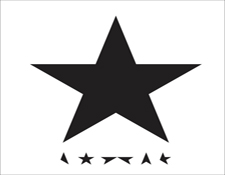 Their “simple definition” is “the last performance or piece of work by an actor, athlete, writer, etc.”
Their “simple definition” is “the last performance or piece of work by an actor, athlete, writer, etc.”
I prefer the first definition…
I’ve confronted swan songs most of my life. As a little kid, when The Beatles split up, I was devastated. Abbey Road had been out about six months and my older brothers and I were all so into it. And then I read the news that day …
Oh boy…
Abbey Road became The Beatles “swan song.”
TIME, HE’S WAITING IN THE WINGS
The Beatles were my first big musical love affair, so I was really torn up by their abandonment. Yes, abandoned: we’d relied on them all those years for hope and inspiration. And then it was gone. The drama was no doubt exacerbated by my being but nine years old at the time — I felt the sky had fallen as other sad news of the period, from Jimi Hendrix and Janis Joplin’s passing to Vietnam and Richard Nixon took their toll.
Eventually Lennon sang to us “… dear friends you’ll just have to carry on, the dream is over.”
It wasn’t really over, however. Like Dylan had said, the times were just a-changing… We were all growing up, learning to cope with the ch.. ch… ch… changes…
Change for this nine year old spun fast and furious, but with it came the realization that like time, life indeed continued onward, especially given the stream of next-generation Beatle (and Beatle-related) music. Let it Be (the unfinished album the Beatles tried to record before Abbey Road) was mixed and rushed out. Paul McCartney’s first solo album came out. Badfinger hit the charts with a Beatle-penned hit, “Come & Get It” and went on to make fine fab four flavored music for the next five years. Emmit Rhodes’ eponymous album on Dunhill was the first slab of amazingly Beatle-esque music I’d heard from outside the Beatle universe (true story: Emmit’s album was sent to me for free as a consolation from The Record Club of America which was out of stock on Let It Be, which they eventually sent as well. Really!).
Now ten-year old me started to breath more easily.
YOU ARE NOT A VICTIM
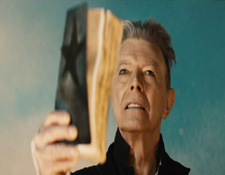 I soon discovered great musics my older brothers were listening to in the early 1970s from prog rock (Yes, Jethro Tull, ELP, Zappa) and jazz (Coltrane, Chick Corea, Mingus) to singer songwriter stuff (Elton John, Carol King, Seals & Crofts, John Sebastian, etc.). It was right around that time that a particular record hit the airwaves whiich was all mine in terms of discovery. The year was 1972 and I was now 11 years old when Mott The Hoople’s “All The Young Dudes” broke out (released the month of my 11th birthday!). I bought that 45 RPM single and played it over and over and over. In retrospect I realize now that this was the first anthem for my ascending teenage generation. In its own way, that song drew a line in the sand between the past (the British Invasion, Hippies, Woodstock, etc.) and the future generation leading to the eventual punk and new wave movements of the late 70s.
I soon discovered great musics my older brothers were listening to in the early 1970s from prog rock (Yes, Jethro Tull, ELP, Zappa) and jazz (Coltrane, Chick Corea, Mingus) to singer songwriter stuff (Elton John, Carol King, Seals & Crofts, John Sebastian, etc.). It was right around that time that a particular record hit the airwaves whiich was all mine in terms of discovery. The year was 1972 and I was now 11 years old when Mott The Hoople’s “All The Young Dudes” broke out (released the month of my 11th birthday!). I bought that 45 RPM single and played it over and over and over. In retrospect I realize now that this was the first anthem for my ascending teenage generation. In its own way, that song drew a line in the sand between the past (the British Invasion, Hippies, Woodstock, etc.) and the future generation leading to the eventual punk and new wave movements of the late 70s.
At the time, I accepted that The Beatles were gone for good and I began to look for something new and hopeful… “All The Young Dudes” spoke to that 11-year old part of my brain. Sure, I didn’t fully understand all of what the song was about at the time. It didn’t matter. I just knew it was cool and it was somehow saying I could be somebody, something…
“Oh brother you guessed, I’m a dude, Dad!”
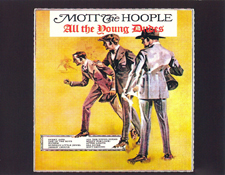 By the time I got to Jr. High, I was listening to Alice Cooper’s School’s Out and Billion Dollar Babies, The Who’s Quadrophenia and Elton John’s Goodbye Yellow Brick Road. Zappa’s Freak Out turned everything I knew on inside out. And by then I knew that David Bowie had written “All The Young Dudes.” My friend Sean was way into Bowie so I started checking out records like Hunky Dory, Pin Ups, Aladdin Sane and of course Ziggy … It was cool when Elton recorded with Lennon, but the music he made with Bowie was much cooler …
By the time I got to Jr. High, I was listening to Alice Cooper’s School’s Out and Billion Dollar Babies, The Who’s Quadrophenia and Elton John’s Goodbye Yellow Brick Road. Zappa’s Freak Out turned everything I knew on inside out. And by then I knew that David Bowie had written “All The Young Dudes.” My friend Sean was way into Bowie so I started checking out records like Hunky Dory, Pin Ups, Aladdin Sane and of course Ziggy … It was cool when Elton recorded with Lennon, but the music he made with Bowie was much cooler …
Fame… Fame…Fame…Fame…Fame…Fame…Fame…Fame…Fame…Fame…Fame…Fame…Faaaaame…
I LOOK AT MY WATCH AND IT SAYS 9:25
But just as fast as Lennon reappeared on the charts with Elton and Bowie, he retired to raise his son Sean. Five years later, he and Yoko Ono returned with the wonderful, Double Fantasy. And then he was shot down, murdered, taken from us all for good. Double Fantasy became Lennon’s swan song. And that same shock and disbelief I felt when The Beatles split again hit me square between the eyes. There would be no more music from that Beatle. No chance of a Beatle reunion. Sean lost his Dad; Yoko lost her soul partner. Double Fantasy became a number one best seller posthumously. 45 minutes of aching beauty.
With Bowie’s different-but-equally-shocking take-down from cancer, my thoughts turned to others who had passed suddenly leaving healing new music immediately behind:
- Janis Joplin’s swan song Pearl was issued just after her death, reaching the top of the charts. 34 minutes of aching beauty.
- Jimi Hendrix’ posthumous Cry of Love reached number three in the US and number two in the UK. 39 minutes of aching beauty.
- Jeff Buckley left us 52 minutes of aching beauty in his Grace, but also 90 minutes of lovely Sketches For My Sweetheart The Drunk.
- Joe Strummer’s Streetcore is 42 minutes of aching beauty, bittersweet brilliance he was recording when he died suddenly at age 50.
- Glen Campbell’s last album, See You There, was made as the artist was deteriorating from Alzheimers. 38 minutes of aching beauty.
- Warren Zevon put out two albums across his dying days, My Ride’s Here and The Wind. Nearly 90 minutes of aching beauty.
Even Nirvana’s In Utero went on to become the band’s swan song after Kurt Cobain’s suicide; I wasn’t as connected to them as these other artists I’ve mentioned earlier, but I certainly understood the pain the fans were going through. They were left with 48 minutes of aching beauty. All apologies…
Possibly the most devastatingly beautiful swan song came from the man in black himself, Johnny Cash, with his cover of Nine Inch Nails’ “Hurt.” Who needs a whole album when you have 3:38 of aching beauty like that? But, there was in fact a whole series of American Recordings, albums Cash recorded in his later years, produced by Rick Rubin.
If all this sounds a bit morbid, I apologize. I’m just painting perspective on the process many artists have gone through (and the process I went through to prepare for this).
HIS SCRIPT IS YOU AND ME BOY
My reaction to David Bowie’s passing surprised even me. I have all his albums, most on vinyl and many also on CD as well as live concerts, surround sound discs, videos etc. But compared to other artists such as The Beatles, Frank Zappa, Elvis Costello or Bruce Springsteen, I never considered myself an uber-hardcore fan. I mean… I have only seen him in concert once (on the 1983 Lets Dance tour, at that)… But in writing this I realized I was a much much bigger fan than I ever considered; he’d somehow snuck into my daily being, which I’ve traced back to my original single version of “All The Young Dudes.”
Thus, the shock wave when the news was announced late Sunday night, January 10 — as The Hollywood Reporter announcement came through my Facebook feed — was nothing short of the pain felt when John Lennon was murdered. Complete disbelief was followed by intense sadness. The Lennon parallels are undeniable: iconic artist puts out acclaimed recordings after a long sabbatical and is suddenly cut down. Cancer is every bit the heinous murderer that Mark David Chapman is/was. The shock value is equivalent. No one, apart from Bowie’s closest of confidents, really saw this coming.
]]>I THINK OH GOD I’M STILL ALIVE
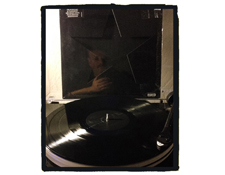 In total, it took me four days to get to a point where I could even listen to Blackstar. In the interim, I walked several miles around San Francisco where I saw an outpouring of grief and sadness for Mr. Bowie, from store placards bearing quotes about him to stores playing his music to public announcements in a thrift shop about a Bowie event at a local club. Tribute events are happening around the world now.
In total, it took me four days to get to a point where I could even listen to Blackstar. In the interim, I walked several miles around San Francisco where I saw an outpouring of grief and sadness for Mr. Bowie, from store placards bearing quotes about him to stores playing his music to public announcements in a thrift shop about a Bowie event at a local club. Tribute events are happening around the world now.
In the day before playing Blackstar, my listening danced around the periphery of Mr. Bowie’s influences. Beatles … Jacques Brel … I played Mick Ronson’s Slaughter On 10th Avenue, with its spectacular Richard Rogers interpretation. I played Bowie and Mott versions of “All The Young Dudes.”
I even learned of a song by Elvis Presley called “Black Star” which may have been an influence on Bowie (note: thanks to Facebook group No Hipsters Allowed for turning me onto this!). Unreleased until the 1990s — the song was known as “Flaming Star” for the movie of the same name. Even though he didn’t write it, Presley (who, by the way, was born on the same day as Bowie) might well have at least been thinking about his own future mortality with this song as he navigated a wavering career:
“One fine day I’ll see that black star
That black star over my shoulder
And when I see that old black star
I’ll know my time, my time has come
Black star don’t shine on me, black star
Black star keep behind me, black star
There’s a lot of livin’ I gotta do
Give me time to make a few dreams come true, black star”
You can hear a version of Presley’s “Black Star” at this YouTube link.
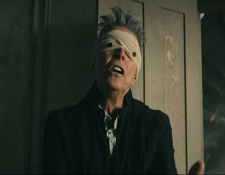 Coincidentally and somewhat ironically, I happened to play Beethoven’s Ninth Symphony — the Maestro’s final, the last in a Leonard Bernstein box set I picked up last year which I’d been exploring chronologically. According to the Wiki, Beethoven’s Ninth marked the composer’s first on stage appearance in 12 years (back then, live performance was the only way to have your music heard). In a way, Beethoven’s Ninth is the perfect Blackstar precursor, with its dramatic ebbs and tides, atmospheres and celebrations. “Ode To Joy” and its final message took on added meaning:
Coincidentally and somewhat ironically, I happened to play Beethoven’s Ninth Symphony — the Maestro’s final, the last in a Leonard Bernstein box set I picked up last year which I’d been exploring chronologically. According to the Wiki, Beethoven’s Ninth marked the composer’s first on stage appearance in 12 years (back then, live performance was the only way to have your music heard). In a way, Beethoven’s Ninth is the perfect Blackstar precursor, with its dramatic ebbs and tides, atmospheres and celebrations. “Ode To Joy” and its final message took on added meaning:
“Be embraced, Millions!
This kiss for all the world! …
All men will become brothers
Under thy gentle wing.”
WE SHOULD BE ON BY NOW
I have listened to Blackstar five times now, once in the car.
Does it live up to expectation? Well, yeah!
Many of you know how good it is already. Once you accept the reality of Bowie singing his swan song — much like Warren Zevon, Johnny Cash and Glen Campbell before him — it becomes easier to immerse oneself in the beauty of the recording.
Musically, I was a bit surprised at just how Bowie-ish it sounds; I’d read all the pre-release hype about the innovative jazz group backing him for this record and how Bowie was listening Kendrick Lamar while making the album. That is all fine and good, but at the end of the day, it sounds like a Bowie record, very much in keeping with directions he toyed with over the years (Outside, Earthling, Reality, etc.). Heck, one song reminds me of something from Scary Monsters, with the guitarist evoking Fripp-ervescent tones (Hey, Frippophiles … I just invented a new phrase: Frippervescence!). Some songs touch other influences. One song, “‘Tis a Pity She Was a Whore” echoes King Crimson’s 1973 epic “The Talking Drum,” with its incessant drum and bass signature in the driver’s seat. “Lazarus” opens up like a lost a lost Interpol track by way of the Cure.
Fidelity wise, the vinyl pressing of Blackstar is much better than its predecessor. Not that The Next Day was bad or anything, but the mastering felt perhaps a bit compressed; the HD Tracks high resolution download of The Next Day sounded great! Playing Blackstar on vinyl sounds superb with rich mid-ranges, round lows and airy highs. Bowie’s voice sounds fabulous as well — this does not sound like a man on death’s doorstep.
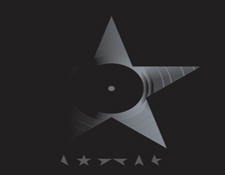 This is clearly a recording designed for vinyl. The packaging is absolutely first class and deluxe. Thick, dark vinyl. Please pardon the obligatory audiophile-flavored phrase as no pun is intended: Blackstar is pressed on dead quiet vinyl and is perfectly centered. The album comes in custom protective thick plastic inner sleeve that is thoughtfully designed so you can easily remove the record without scratching it. The enclosed booklet of pictures and words is a beautiful, haunting complement to the recording. Even the 320 kbps MP3 download sounds pretty good, all things considered. Mobile listening? Yeah, I’ll celebrate David Bowie’s life taking Blackstar with me alongside others in his catalog.
This is clearly a recording designed for vinyl. The packaging is absolutely first class and deluxe. Thick, dark vinyl. Please pardon the obligatory audiophile-flavored phrase as no pun is intended: Blackstar is pressed on dead quiet vinyl and is perfectly centered. The album comes in custom protective thick plastic inner sleeve that is thoughtfully designed so you can easily remove the record without scratching it. The enclosed booklet of pictures and words is a beautiful, haunting complement to the recording. Even the 320 kbps MP3 download sounds pretty good, all things considered. Mobile listening? Yeah, I’ll celebrate David Bowie’s life taking Blackstar with me alongside others in his catalog.
Gosh, its a bit mind boggling to consider the man’s bravery and commitment to his art, making this final statement. Even as the final soaring choruses of the last song on the album fade out, you know he giving us keys to his universe.
“Saying more and feeling less
Saying no but meaning yes
That is all I ever meant
That’s the message that I sent
I can’t give everything away”
You, in fact, gave us everything, Mr. Bowie. And, your spirit will live on through your art. Thank you.
